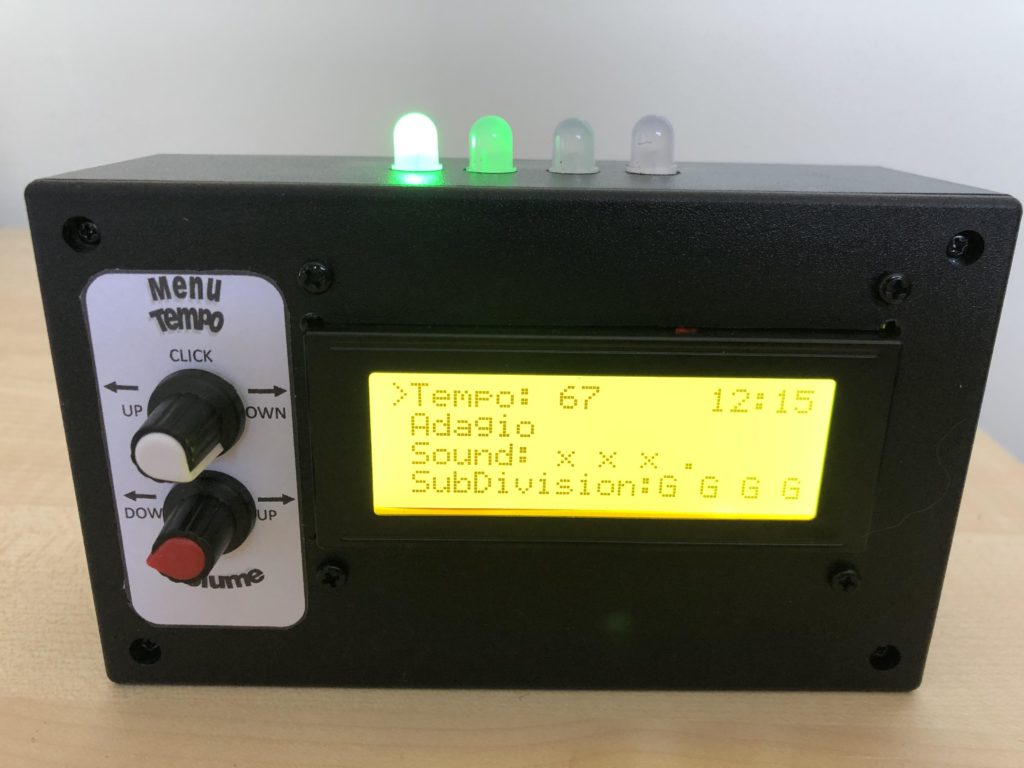
In the world of music, being able to keep time accurately is vital when playing a piece, as even small deviations in timing can cause the notes played to sound “off.” Ordinarily a device called a metronome is used to provide consistent ticks that the musician can use, but most are not that visually interesting. This is what inspired ChristineNZ over on Instructables to create her own metronome that uses an Arduino Uno to both show the beat and produce a small noise.
ChristineNZ’s Piano Metronome enables users to select both the rate (tempo) of the beat and its volume by turning one of two rotary encoders. Rather than having some clunky interface, this project has a large 20×4 I2C LCD on the front that displays the current time via an RTC, the sound’s amplitude, and even subdivisions. The top of the enclosure also holds four RGB LEDs that visually indicate the beat and subdivision if present.
One other cool feature of the Piano Metronome is its ability to show various tempo markings, which are the names given to the beats-per-minute value. To observe ChristineNZ’s project in action, check out the video below or visit its write-up to see how it was built along with the accompanying software.
The post The Piano Metronome is key to keeping the beat appeared first on Arduino Blog.
No comments:
Post a Comment